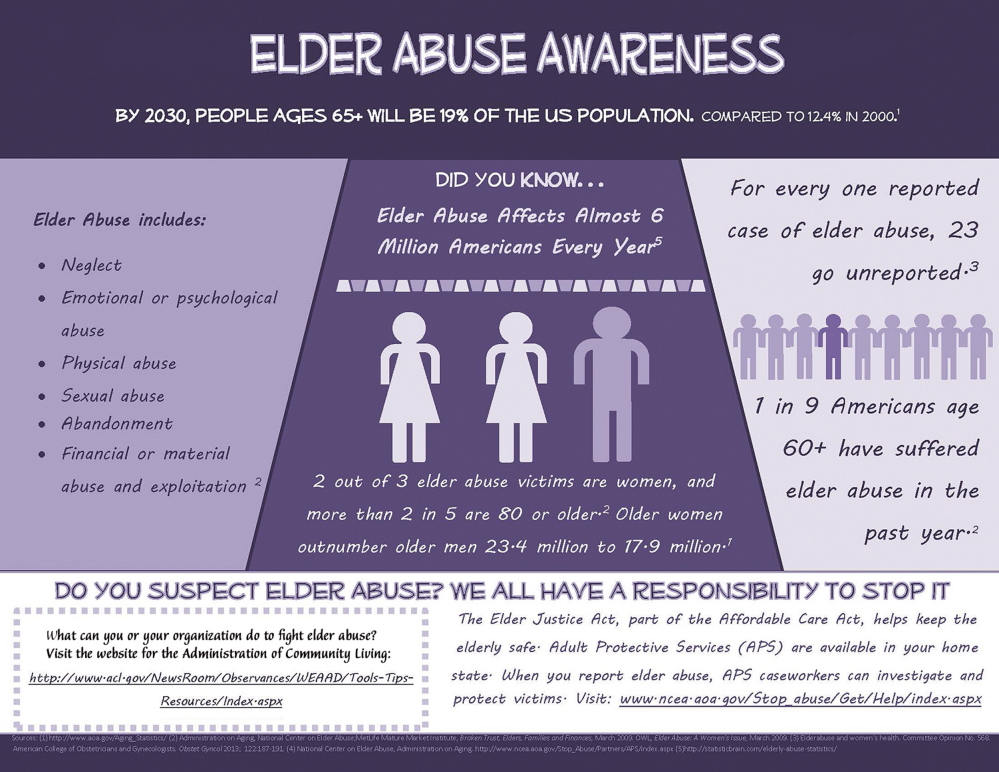An estimated 5 million elderly are victims of abuse in America each year, according to the 2010 National Elder Mistreatment Study. These are crimes that cost $5.3 billion annually in medical costs. Victims of elder abuse are three times more likely to be hospitalized and four times more likely to end up in a nursing home than other elders.
But statistics do not impart the suffering of many victims. Family members have allowed their parents to rot to death, caregivers have stolen the credit cards of the aged, nursing home staff have sexually assaulted residents and relatives have sold drugs out of the homes of their elderly relatives. A study in the Journal of the American Medical Association shows that elder abuse results in unnecessary illness and injury, as well as premature death.
In spite of such research, we know little about what methods will best detect and deter elder abuse. And beyond estimates and anecdotes, we have no data system to give us an accurate picture of the prevalence and nature of the abuse, neglect and exploitation across the country. The knowledge relating to elder abuse lags decades behind what we now know about child abuse and domestic violence. Yet as the aging of society accelerates, information and assistance in combating the problem has never been more needed.
In March, the Obama administration submitted a modest $25 million proposal to fund the Elder Justice Act, a law enacted in 2010 but grounded by a lack of funding. The administration’s request would fund grants to test ways to detect and prevent elder abuse, strengthen data collection and support research into the issue. The funding would also establish demonstration grants and determine what works and what does not. This funding would help develop a data system and research to create credible benchmarks for preventing elder abuse. Unfortunately, a subcommittee of the Senate Appropriations Committee slashed the funding to $10 million, an amount insufficient to begin work to address this crisis among our elderly.
A major report on elder abuse, neglect and exploitation in the United States released on July 9 identifies a clear path for addressing the problem. Funded by the Departments of Justice and Health and Human Services, the “Elder Justice Roadmap Report” identifies and prioritizes actions that direct service providers, educators, policymakers, researchers and the public can take to benefit older adults facing the devastation of abuse, neglect, and exploitation.
Funding for the Elder Justice Act would be an important first step down the path to a solution detailed by the Elder Justice Roadmap Report.
The American Bar Association has long worked to improve the justice system’s response to elder abuse and to enhance awareness about the issue. We urge both the Senate and the House Appropriations Committees to fund the Elder Abuse Act with at least $25 million as an overdue step toward reducing the personal suffering and societal costs associated with elder abuse.
James R. Silkenat is president of the American Bar Association. Email at abapresident@americanbar.org. This essay was distributed by MCT Information Services.

Send questions/comments to the editors.




Comments are no longer available on this story